It has been a year unlike another – one which has seen the NHS and its staff rise to unprecedented challenges.
Covid-19 has changed life in a way that would have been unconceivable even a few months before the onset of the pandemic.
Now, thanks to the vaccination programme, there are reasons for hope, though we know there is still a long way to go.
Sadly, we have lost many people, despite the best efforts of the health service and its legion of dedicated staff to save lives.
Most of the media attention has been on the amazing frontline staff: the doctors, the nurses, the allied health professionals, many if not all of whom have been working in Covid hotspots.
But they have not been working alone. All staff and those in the NHS’s partner organisations have had a vital part to play, but very often the wider public is not aware of their roles or their contributions.
There are hundreds of different roles within the health service. It would be impossible to include them all. Instead we have focussed on a relative few to give an idea of the many ways in which the NHS has responded.
Suffice to say that response didn’t just fall into place by accident. There has been a huge amount of planning and preparation over many years, in anticipation of a range of potential crises – including a pandemic.
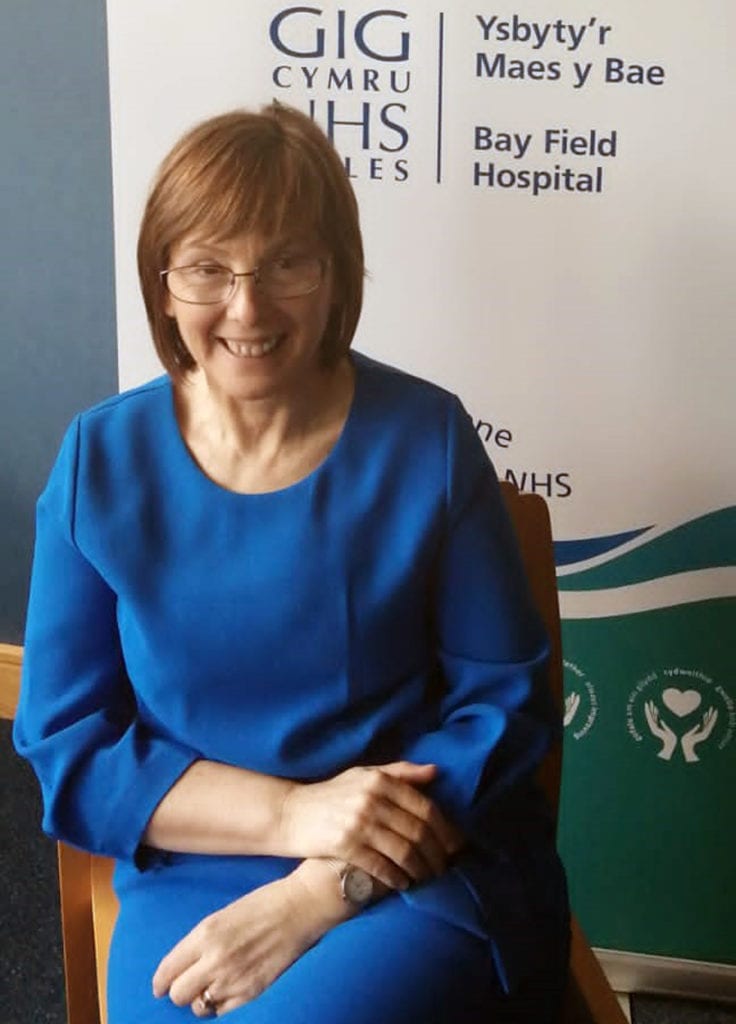

Instrumental to this has been Karen Jones, Swansea Bay’s Head of Emergency Preparedness, Resilience and Response.
“Having high quality planning in place to deal with such emergencies has always been my prime aim,” she said.
“Around 90 per cent of my job includes preparedness for any emergency that may be coming over the horizon.
“A lot of my work will only be seen and come to fruition when we need to respond to an emergency. I am grateful that the planning put in place has allowed us as a health board to do this effectively and safely.”
Karen said the past year had been a real mix of emotions, with teams across the health board working as one, responding to the pandemic and caring for patients, families and staff.
The structures for that were put in place more than a year ago and the teams have worked tirelessly ever since. Everyone involved, she said, both on the frontline and in support, had been true heroes.
“I have been in absolute awe of the health board response and immensely proud of the journey that we have been on,” she said.
“I like to think we are all cogs in one big wheel, that allow the wheel to keep turning. The support from a strategic, tactical and operational level has been second to none.
“We have been faced with many challenges and such a wealth of emotions but the compassionate, empathetic leadership, true tenacity and sheer dedication gives us the courage to be bold and visionary for the future. I take great pride in being part of this.”
As part of the strategic approach, the health board set up a Covid Coordination Centre (CCC) to oversee the pandemic response.
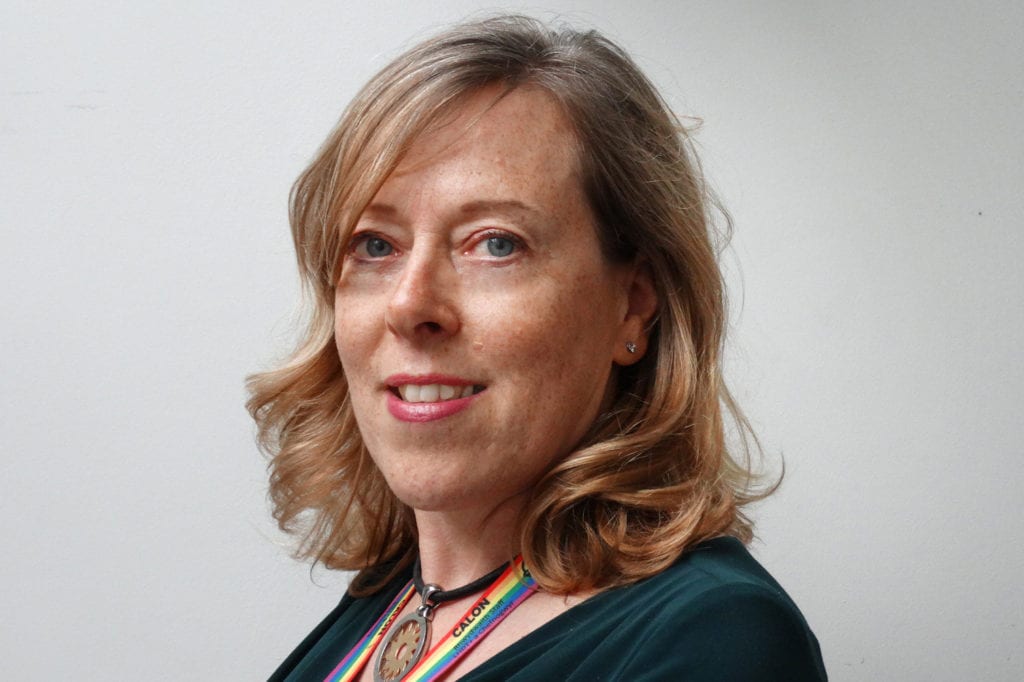

Dorothy Edwards, Deputy Director of Transformation, helped set up the CCC, working with Karen Jones and with Dr Keith Reid, Swansea Bay’s Director of Public Health and Gold commander – Gold being the strategic group with overall control of the health board’s response.
Dorothy said she did not think then that she would still be focused on the Covid response a year later.
“It has truly been a year of incredible highs and lows and I have never been prouder to work in the NHS,” she said.
“A lot of people perhaps don’t realise the effort that goes into managing our overall response.
“Throughout the last year, we found ourselves reacting to a wide range of issues and the focus changes all of the time depending on where we are in the pandemic curve.
“Testing, PPE, staff health and well-being, equipment, building field hospitals, supporting care homes, clinical pathways, vaccination – the list goes on.”
The CCC’s role is to gather intelligence from the Welsh and UK governments, Public Health Wales and other sources, ensuring Gold meetings had an overall picture to make the best decisions possible.
The CCC was a seven-day-a-week operation, often working very long days.
“I was really proud when the Welsh Government said they felt our response to the pandemic had been professional,” said Dorothy.
A few weeks before Christmas, she started a lead role in the vaccination programme. It had, she said, been a whirlwind ever since.
“Our skilled, friendly and committed vaccination teams make me proud every day and the feedback that patients give us is truly humbling.
“Personally, it has been a hard year, but also one of the most rewarding in my career,” she said.
“Like everyone, I have struggled with not being able to do ‘normal’ things and to see family and friends. But I am also thankful that I have a meaningful job that keeps me occupied.
“I will look back at this year with a sense of pride, humility and gratitude for our wonderful NHS. Long may it continue!”
The vaccination programme is being delivered by Swansea Bay’s hospital pharmacy service – which has also had a hugely important role in the care of patients in hospital.
Clinical pharmacist Jodie Gwenter said: “Demand for medicines soared during the peak of the pandemic. Patients needed critical care, oxygen and end of life drugs fast and in high volume.
“Pharmacy teams across health boards and nations had to work together to save as many lives as possible, all whilst balancing anxieties for their own families and health.
“The emergency response was a tremendous effort. Wards were popping up in hallways, offices were converted to satellite pharmacies, staff were deployed to field hospitals, colleagues sought rented accommodation to shield loved ones. It was a tsunami of redesign and readjustment.”
Jodie said everyone’s primary goal was to treat the infection effectively and prevent viral spread quickly.
For pharmacy, this meant making sure Covid-19 treatments were as safe as possible and based on sound science.
Now the service is in a very different place, with pharmacy successfully rolling out the biggest mass vaccination programme ever recorded – the vaccination figures are updated regularly on our Facebook page.
Jodie said: “As though vaccinating a whole nation wasn’t challenge enough, there is also more than one type of vaccine, some are frozen, others are not, instructions for use vary, patient use is complicated and expiry dates are extremely short.”
Jodie said each shift at a mass vaccination centre brought a wave of emotion; feelings of fulfilment and achievement as all the planning and sacrifice came to fruition.
“The gratitude of the public as they receive their vaccine dose is humbling, as is the temporary wall of thank you cards and indebted messages.
“It takes me back to the Thursday thank you claps, creative donations and rainbow posters; the nation really were behind us, I felt honoured and appreciated.”
Jodie said Covid-19 had changed pharmacy and its workforce in ways they never thought possible. That transformation was continuing through new technology and the development of enhanced skills.
“Reflections are bittersweet. I feel incredibly sad for the lives we have lost and an overwhelming sense of pride for what we’ve achieved.
“To say it has been a rollercoaster ride would be an understatement and the professional resilience of pharmacy has been nothing short of remarkable. It makes me proud to work in healthcare and proud to be a pharmacist.”
Another huge undertaking since the pandemic started is Covid-19 testing, which began in the health board’s first unit at Margam in March last year. This was followed by the Liberty Stadium unit, and then by community, mobile and walk-in testing.
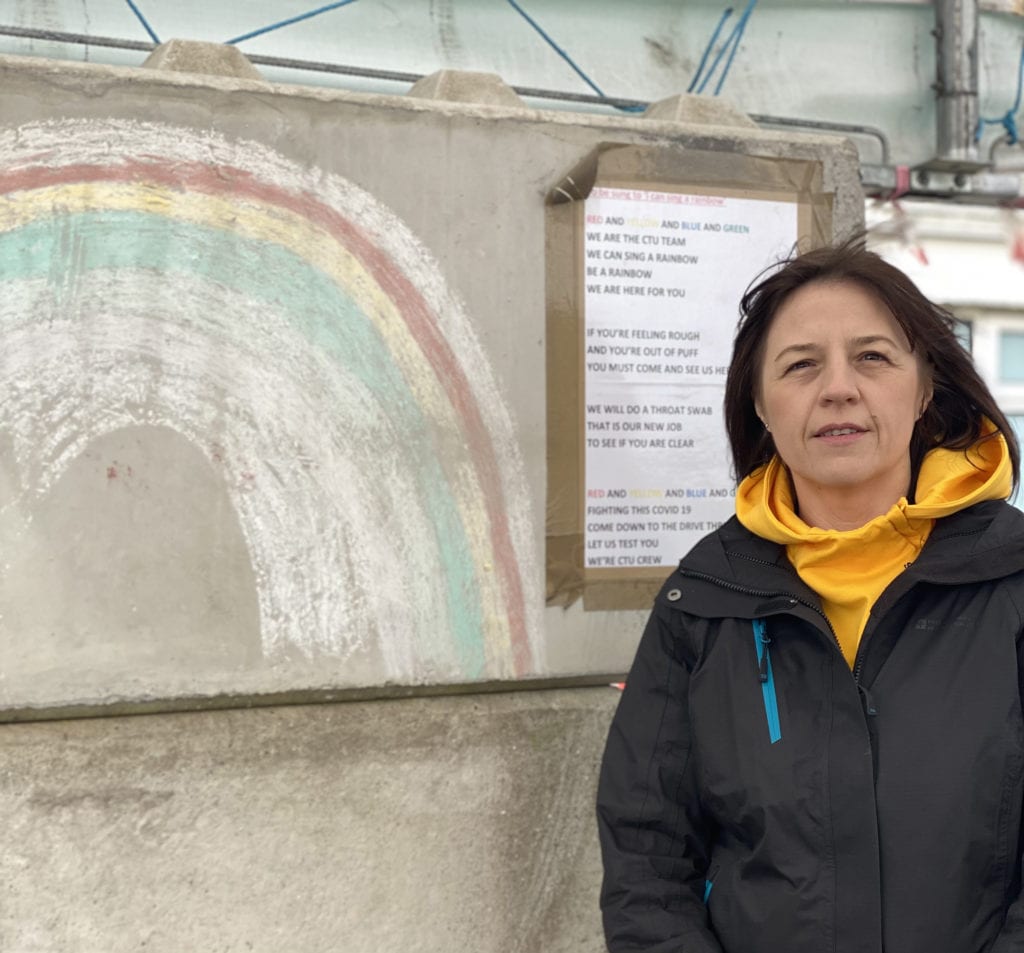

Victoria Kiernan, whose background is in school nursing, was deployed as Operational Manager at the Margam unit last March.
Having served with the Royal Navy, Victoria was familiar with working outdoors and in field hospitals.
Looking back on her then-new role at Margam, she said: “I was comfortable and excited about the change although being deployed under the circumstances of the pandemic I was nervous and anxious about what that would look like.
“Testing demands grew very quickly and in April I worked with a number of different key professionals setting up the Liberty unit.
“That was a mammoth task. We worked day and night making sure the site was fit for purpose. Building relations and networking with local authority, police, estates, emergency planning and so on were invaluable.
“Learning how to work within the new Covid rules was challenging but we quickly adapted and changed the ways we worked.
“My personal learning curve, knowledge, confidence and experience has been vast and when I look back it has all been truly amazing. The relationship and friendships I have made will be for life.”
Last September, Victoria successfully applied for the Operational Lead Nurse role for testing – something she said has provided her with more opportunity to grow and challenge herself.
“The role has been intense and I have had to rapidly respond to changes and new policies, but I enjoy the pace and find the role to be very extremely rewarding.
“I have been at the testing units for a year now. The team I work with are like my family. We work together every day. The relationship we built up I will remember forever.
“Something that I was originally nervous about being part of has just proven to be the complete opposite and actually I’ve had one of the best experiences of my career.”
Key achievements Victoria has been part of include: setting up a call centre in less than 24 hours; testing all residents and staff of 133 care homes in less than six weeks; assisting with setting up the Liberty unit in less two weeks; developing an “amazing” team and recruiting 70 new roles – all to deliver a patient-centred service in a very difficult time.
Now she is moving on to a new role, as Lead Nurse for School Nursing and Looked After Children, but her experiences of the last 12 months will stay with her for ever.
“As I get ready to hand over to my replacement I am proud of this truly incredible service that has been set up. I am sad to say goodbye to this massive achievement and to the people but remain very proud of how and what we have achieved as a team.”
Swansea Bay has its own laboratory medicine service, part of pathology, which analyses mainly bloody samples taken from patients.
Although not involved in the swab tests for Covid-19, it has been very active in antibody testing. This is a blood test used to find out whether someone has had the virus previously rather than has it now.
Immunology Manager Paula Griffiths said many companies that provided diagnostic testing started manufacturing antibody tests in March 2020.
“During April 2020, I began liaising with various commercial companies who had started manufacturing these antibody tests.
“I managed to get newly-developed testing kits from five different manufacturers to evaluate which ones were the best.
“We started testing these kits on the 11th May. Some were good and some weren’t so good.
“Two weeks later the evaluation was complete and we chose the best kit and started antibody testing in Swansea bay on the 28th May.”
Unfortunately, these kits could only test 88 people at a time and the test for these 88 took three hours.
Luckily, another company, Roche, had been working on developing Covid antibody testing kits for its large, high-throughput analysers.
That’s when antibody testing outgrew immunology and moved to the larger analysers in biochemistry which could handle more samples a day.
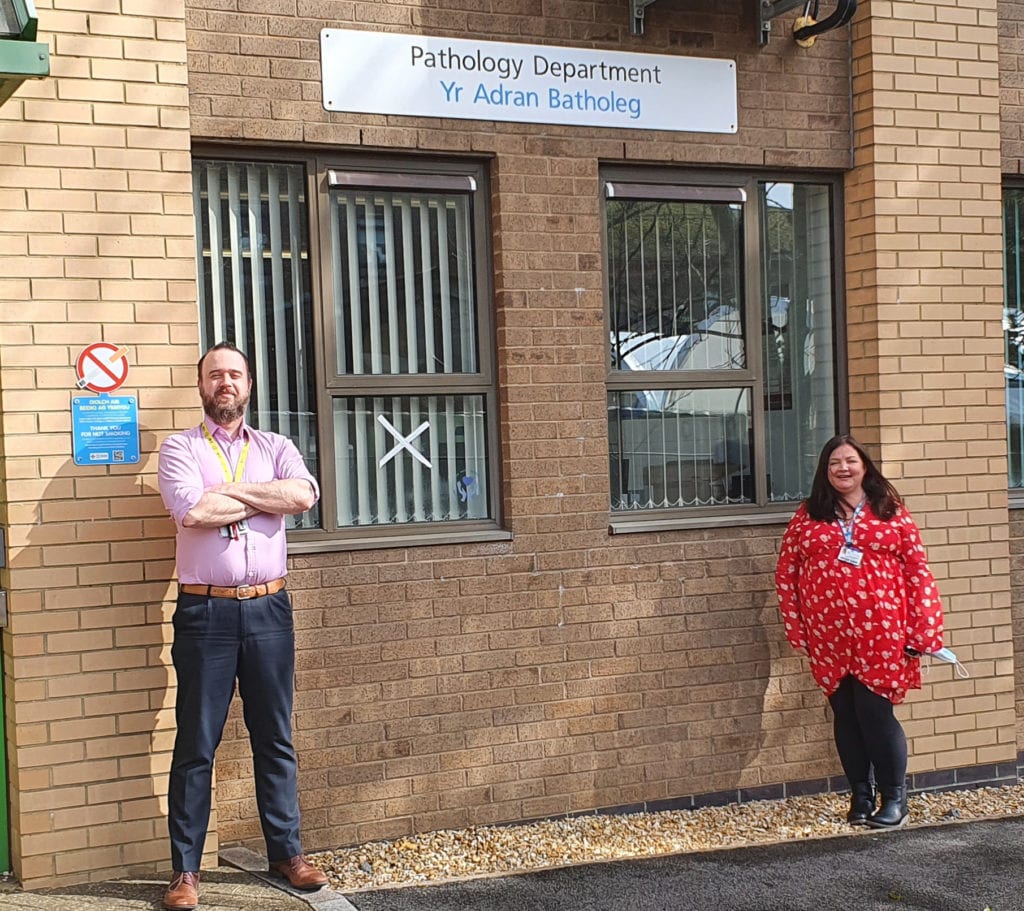

Biochemistry Immunoassay Manager James Murphy picked up the reins from Paula last May.
That was when Roche released its high-throughput antibody testing kit that only took 18 minutes and would work on machinery already in place in Morriston Hospital.
“We now had the capacity to do around 900 tests per hour,” James said. “However, we needed to make sure it worked properly as this kit wasn’t just new to us, but new to the whole world.
“Fortunately, because of the work already undertaken by Paula, we were able to do some comparisons and by early June we were confident the assay (the analytical procedure) worked well.
“At the same time, a wider project was set up across Wales to have one set of control samples; samples from Covid positive patients with known antibody results, which every laboratory across Wales would analyse.
“These results were then compared across Wales and I was very pleased to see that we all got exactly the same results, meaning that we could run the test with confidence.
“By late June we were able to start Covid antibody testing at scale.”
The roll-out was guided by the Welsh Government. It wanted information on how many people in different work groups had already had the virus, to help it understand how the disease had spread across Wales.
It initially selected teachers and healthcare staff, and in Swansea Bay around 18,000 tests were carried out on these groups last summer.
James said: “Testing numbers reached around 2,000 per day at its peak, and we had to adapt our shifts to make sure this work was completed.
“At the same time, because of the large capacity and high throughput analysers we were asked by other organisations within Wales to support ongoing Covid antibody testing as part of serosurveillance studies to see how many people in Wales have suffered from coronavirus.”
That project is still ongoing, with Swansea Bay Laboratory Testing Service testing around 800 samples a week for this study – around 25,000 tests for it so far, and more than 43,000 total Covid antibody tests since May.
“For me, the most amazing part in setting up antibody testing has been the way people have pulled together across the country to make sure the tests we do are right,” said James.
“By regularly keeping in touch and sharing advice and expertise, we have been able to take a new test from ‘hot off the press’ to setting it up as a routine test within a week.
“However, all of this would not have been possible without the laboratory staff here in Swansea Bay.
“They have worked tirelessly throughout the pandemic to provide a 24/7 service, and have adapted quickly and with good grace to an ever-changing situation.”
The same four words – an ever-changing situation – have applied across the NHS over the last year and nowhere more so than in our hospitals.
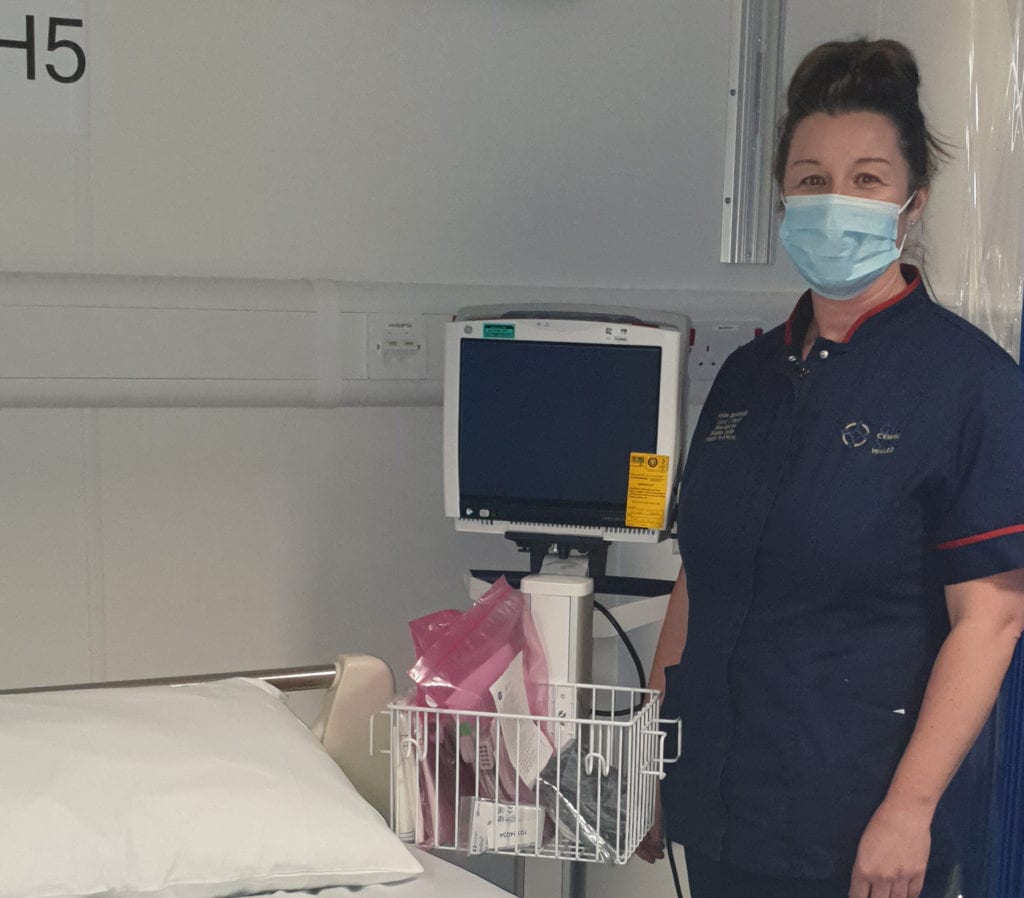

Helen Edwards is part of the clinical site team at Morriston but her vivid account of life during the pandemic there will echo across all our sites.
Helen, Clinical Site Matron, said: “Our priority on each shift was to ensure we had capacity in all areas, Covid and none-Covid, for patients that would need admission.
“We would aim to manage patients effectively and with minimal delays as they moved through stages of their care from ED to the wards.
“Ensuring we had adequate capacity in general ITU, our respiratory non-invasive ventilation wards, our Covid wards and other wards, sometimes meant we needed to move patients out of these areas when they became stable to do so.
“Maintaining capacity and safety was paramount for us as a team.
“Part of our remit is to help counsel, support and advise staff during stressful circumstances.
“This also involved being an advocate for family members when they were unable to visit their very poorly relatives during this difficult time.
“The pandemic also affected us in relation to staff members. We lost valued members of staff who worked in Morriston Hospital who were well known to us all.
“This had an emotional effect on the team, physically and mentally, although we felt we had to carry on in a professional manner to maintain flow and staff morale. This at times became very hard to achieve as none of us had ever experienced working through a pandemic.
“As a team I felt we succeeded in maintaining our professional attitude and I am very proud of the way we supported each other.
“We are a family at Morriston and our job is to support staff, relatives and patients. It has been a time like I have never seen before in my nursing career, and I hope to never again.
“But it has taught us in the importance of teamwork, friendship and how wonderful the NHS really is.”
Further support and comfort, often in the most emotional circumstances, imaginable, has been provided by Swansea bay’s chaplaincy service.
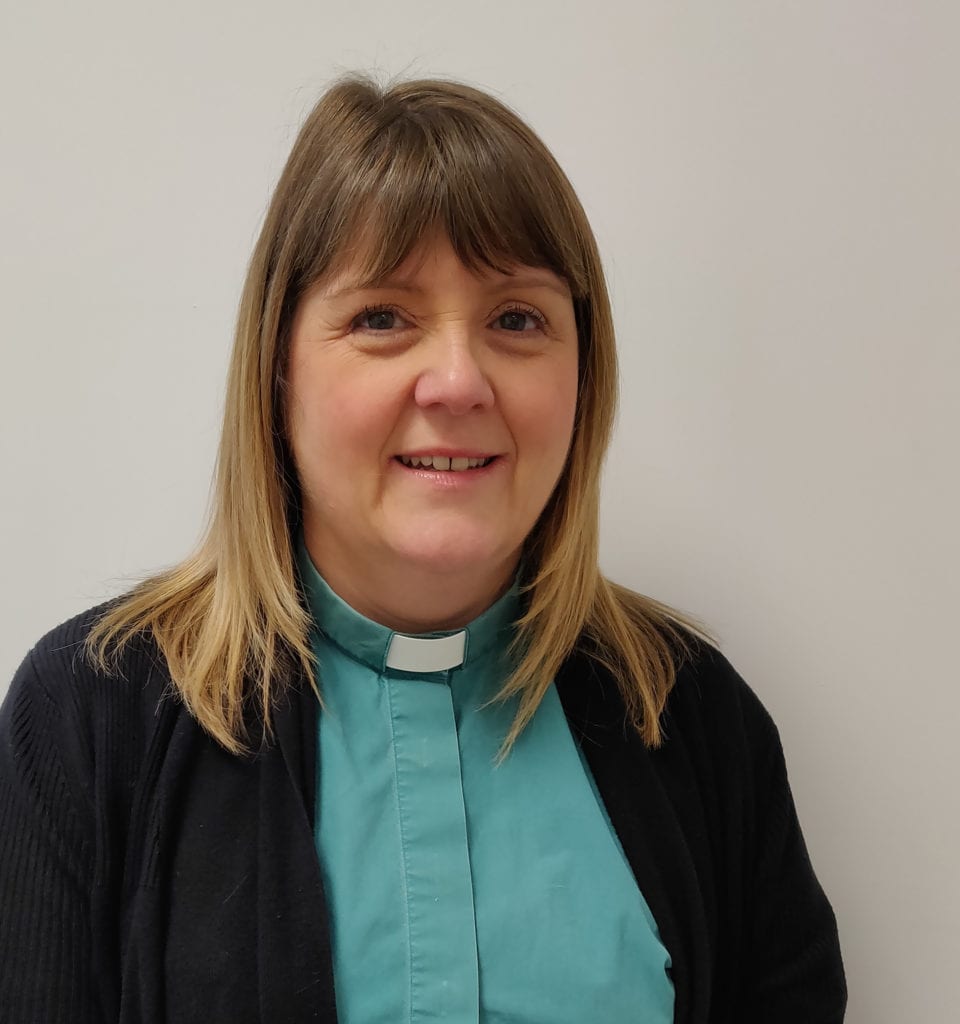

The pandemic became very real, very quickly to Reverend Tracey Pycroft, Head of Chaplaincy and Spiritual Care, when she contracted the virus in March 2020 and spent two weeks ill in bed.
“During that time, I attempted to remotely guide and reassure staff in what was a time of shifting sands whereby decisions made were quickly dispensed with in light of a better plan.
“I have been so proud of my team throughout, including the two new chaplains who started during the pandemic and who must have wondered what they had let themselves in for.
“All our chaplains have shown enormous courage and great innovation under extreme pressure and have not shied away from serving the staff and public of Swansea Bay University Health Board.”
Trained and fitted with appropriate PPE, chaplains have continued to attend patients, including those diagnosed with the coronavirus, to provide spiritual and religious support.
They have helped with patient laundry, practical tasks, devised a whole new set of disposable resources to encourage patients, and forged strong relationships with staff on wards as they supported and listened to them.
“Providing end of life rituals has become so important as chaplains stood in the gap for all the families who couldn’t be with their loved ones as they died,” said Rev Tracey.
“Innovative ways to provide care included having a rabbi on an iPad to join me to say prayers over a patient as treatment was withdrawn. Negotiating the washing and shrouding of Muslim patients who died of Covid became an important function during this difficult time.
“We have supported families by updating them on progress and encouraging them. We made bereavement follow-up calls to families and sometimes met with them.
“Families and local faith ministers have expressed gratitude and comfort knowing that loved ones were not alone and for many their faith became more important during these challenging times.”
The chaplains have also taken to the screen to provide virtual Armistice Day, Loved and Lost Baby Memorial Day, Christmas and, most recently, Holocaust Memorial Day services of remembrance.
They have provided cake to staff, “time to talk” sessions, either one-to-one or in small groups, and have extended their 24/7 on-call service to staff who are struggling and may want to speak to someone.
“Where a death of a staff member has occurred, we have offered visits to the ward or department and taken books of condolence for staff to express their grief,” said Rev Tracey.
“On one occasion we made a bespoke book compiled from intranet comments. We have also held several memorial services for staff on the day the funeral took place.
“We are now seeing a fall in end of life call-outs and we are so thankful for that. However, we remain cautious and vigilant.
“If the last year has taught us anything, it is that much of the small stuff we worry over in life doesn’t really matter but love and hope has carried us through.”
Finally, as well as acknowledging the unceasing efforts of all its staff, Swansea Bay University Health Board would like to pay tribute to all who have supported their local NHS during the last 12 months.
That includes the health board’s loyal band of volunteers, including Neath husband and wife team of Alison and Steve Berni.
For them, volunteering has been a way of feeling useful during furlough and retirement respectively, and has allowed them to support their community during this difficult year.
They have been two of the friendly faces greeting and signposting people at the phlebotomy unit and the Mass Vaccination Centre (MVC) at Bay Field Hospital in Fabian Way.
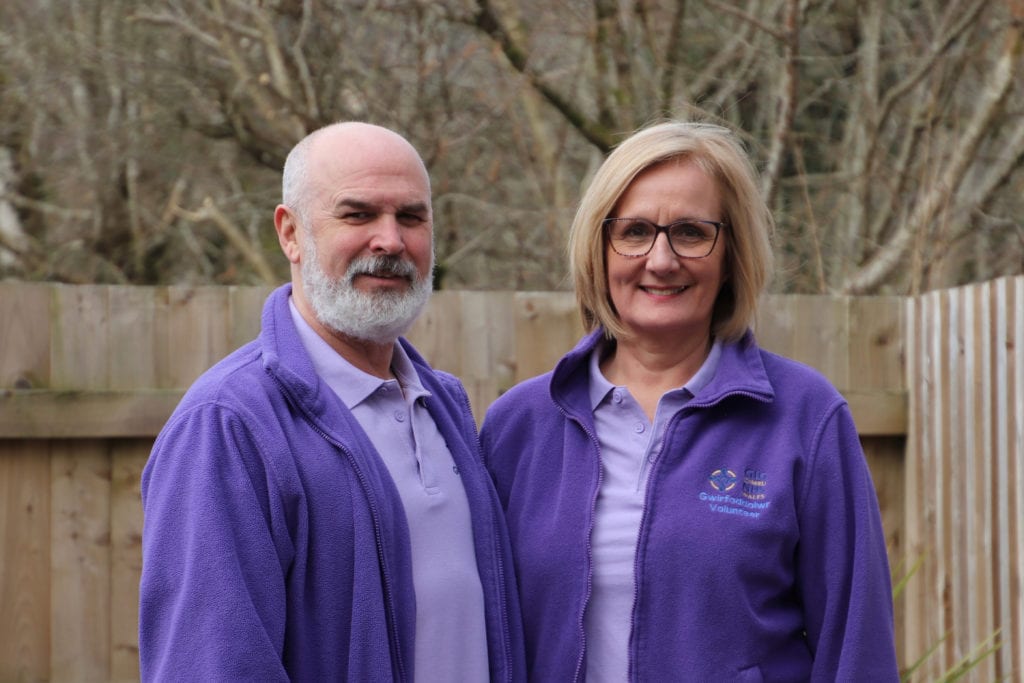

Steve said: “We have been impressed by the amount of organisation going on behind the scenes to make sure everything functions well for patients.
“Volunteering has given us an insight that many people aren’t getting. It has shown us a side of the story that isn’t being seen in the news.”
Alison added: “We are also hearing first-hand the feedback from patients who are very grateful for the care they are receiving at a very stressful time for some of them.
“I think when they visit Bay they realise how well things are working. Our role is to greet the patients and give them support and reassurance.
“Those who attend the phlebotomy unit tend to have underlying health issues, so they are a different cohort to those we see at the MVC.
“Many are elderly so they need more support and sometimes they say, ‘you are the first person I have spoken to since May’.
“So, Steve and I are on hand to be a friendly face and to make sure everyone sanitises.
“We have been made to feel like a part of the team – we are shown the written feedback that patients leave, because some of it is for us. And it is lovely to see how appreciative people are.”
Steve added: “My wife is chattier than me and it has been good for me to have regular contact with people at a time when many people are at home feeling isolated or bored.
“We are from a manufacturing background. I worked at Tata Steel and my wife works in IT at Tata, and I have been able to use some of my organisational skills while volunteering.
“I have set up a WhatsApp group for the phlebotomy volunteers and we communicate regularly on there.”
Alison admitted they had some initial concerns about going into a hospital setting during lockdown, as both have parents in their 80s.
However, she said, the risks were explained and they were told carefully what was being done to minimise them.
“Before we volunteered we offered to help anyone in our street who needed support during lockdown,” she added.
“Steve set up a WhatsApp group among our neighbours – some of whom we didn’t know before the pandemic.
“I hope that contact between people and their neighbours will continue when life returns to some of its normal patterns.”



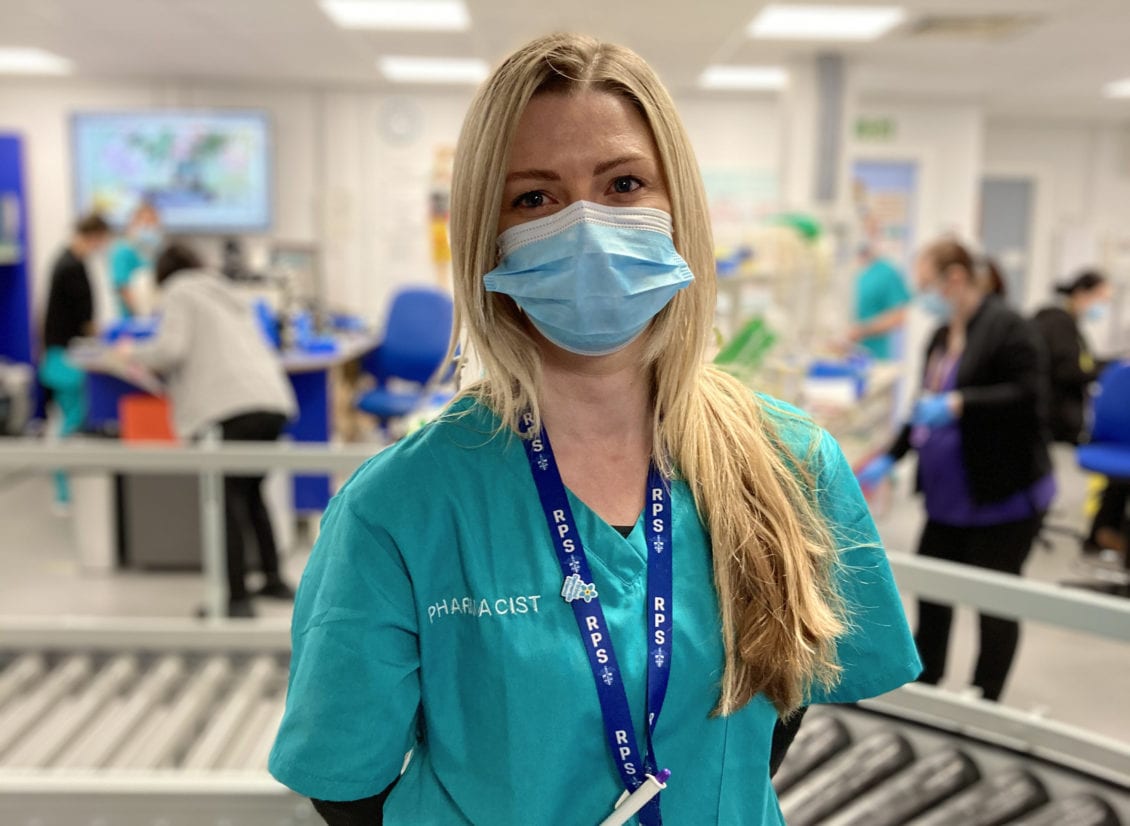





Leave a Reply
View Comments